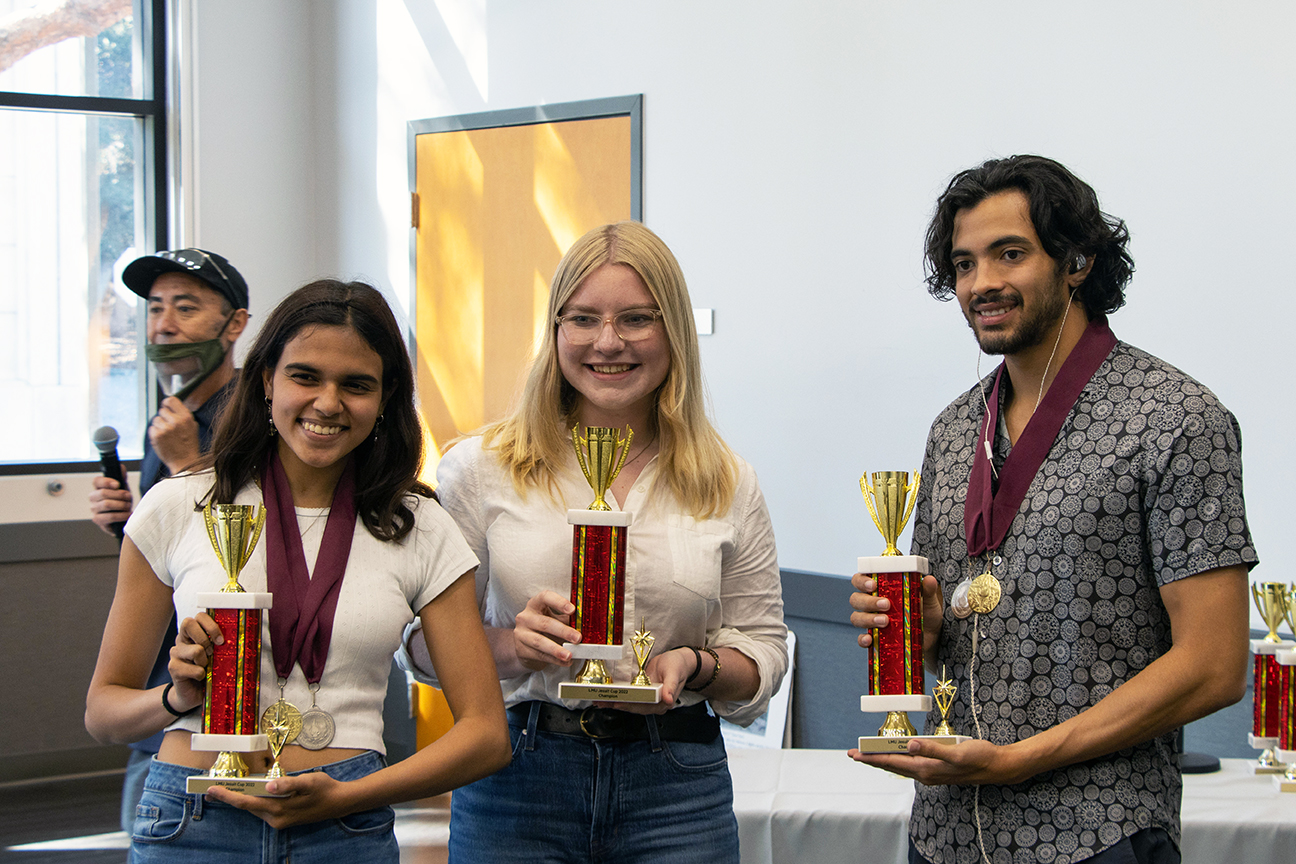
Solutions to poverty and homelessness, and the role of spirituality in civic debates, were the topics at hand for the recent St. Ignatius Dialogues and Jesuit Cup Tournament held at Loyola Marymount University. Debate teams from five universities gathered at LMU in October for the Communication Arts and Advocacy Program (CAAP) event, called “Standing in the Margins,” which merged a debate tournament with an in-person visit to the L.A. Mission.
The teams’ tour in downtown Los Angeles started in conversation with staff members to learn their perspectives on the realities of the homelessness crisis and poverty in this city. “In order to speak informatively about poverty, homelessness, and scarcity, our community should listen and interact with members of these communities,” said Thomas Dowd, LMU debate coach and clinical assistant professor of Communication Studies.
Contestants from LMU, Pepperdine University, University of San Francisco, George Washington University, and Gallaudet University then returned to LMU and gathered in St. Robert’s Auditorium to debate and discuss the concept of “healing justice” in reference to Father Greg Boyle’s organization Homeboy/Homegirl Industries and his book “The Whole Language.”
The visit to the L.A. Mission was designed not only to provide students with an up-close perspective and experience with subjects in the process healing justice, but also allowed the students, who hailed from all over the country, to spend their time together and exchange in meaningful discussion before the debate portion of the event.
“This experience definitely expanded my views on healing justice,” said Ireh Kim, captain of LMU’s 2023 debate team. “The route to healing justice is so wide, the debate tournament helped me understand the various ways to approach the topic.”
The three topic areas in this year’s tournament were: homelessness; formerly incarcerated people’s treatment in society; and the role of spirituality in civic debates. Participants were put into different groupings to exchange, generate, and propose diverse ideas and solutions regarding the issues. “I believe spirituality is highly important in any debate as it opens new conversations and perspectives,” said Kim, a junior international relations major. “We all come from different religious and spiritual backgrounds, it is important to respect them and try to understand them,” added Kim.
A signal moment in the tournament was one the audience didn’t hear: in recognition of the Gallaudet team, the audience didn’t applaud, but offered the sign language gesture for approval.
Gallaudet, located in Washington D.C., is a private university founded for deaf and hard-of-hearing individuals. Through interpreters and closed captioning, Gallaudet students competitively debated against the other contestants with no issue.
In the final round of the debate portion of the event, the judges named Marielle Cornes of George Washington University as first-place speaker, with second-place going to Kim from LMU. The third-place winners were: Sophia Casetta of Pepperdine University, Thalia Guettler of Gallaudet University, and Dan Johnson of University of San Francisco.
When discussing what it means to be a good debater, Dowd concluded, “I think most good debaters have a quality that inclines them toward communication. In the past, I probably would have said listening, but it’s really an attitude of open-mindedness, curiosity, and conversation more than anything else.”






